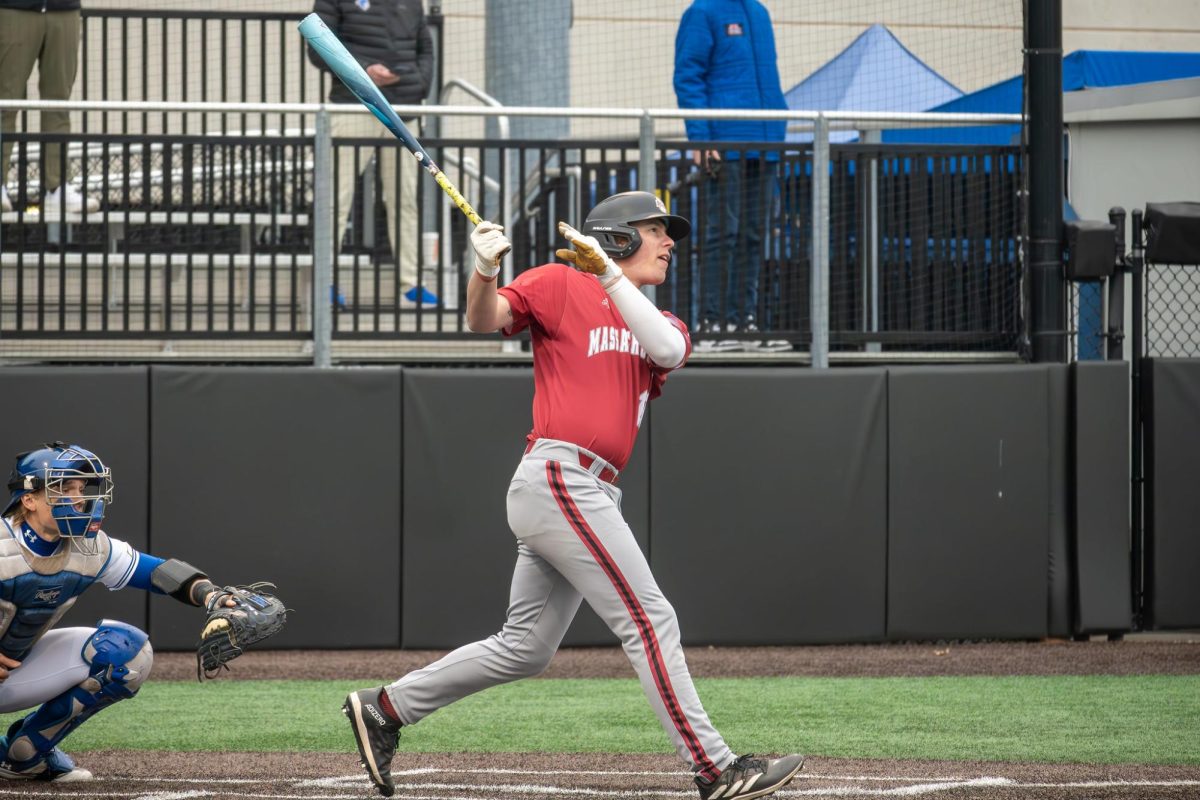
Northwestern professor Aldon Morris gave the University of Massachusetts Amherst Libraries’ 22nd annual Du Bois lecture Friday night, celebrating the scholarship and influence of the founder of America’s first scientific school of modern sociology.
The University celebrated W.E.B. Du Bois’ work and words by hosting the author of “The Scholar Denied: W.E.B. Du Bois and the Birth of Modern Sociology” to reflect on the contemporary relevancy of Du Bois’ life and ideas. The annual lecture series honored Du Bois’ birthday, Feb. 23, by giving insight into his work.
“There is an intriguing well-kept secret regarding the founding of scientific sociology in America,” Morris told the crowd of nearly 100 in the Student Union Ballroom, “The first school of American scientific sociology was founded by a black professor, located at a small, economically poor, racially segregated, southern university.”
Morris continued, “At the dawn of the 20th century, from 1898 to 1910, the black sociologist and activist W.E.B. Du Bois developed the first scientific school of sociology at Atlanta University.”
During an era of racial segregation and Jim Crow laws in the south, Du Bois pioneered a new branch of social science that Morris claimed has long been cast to the shadows.
“I am not making a small claim when I say that W.E.B. Du Bois developed the first scientific school of sociology in America,” Morris said. “My purpose in writing The Scholar Denied was an ambitious one.”
He added, “My book aims to shift paradigms, disrupt dominant narratives and illuminate new truths.”
Morris’ lecture dove into the history of American sociology by pointing out that early sociologists rarely used empirical methods to collect data. He described early sociology closer to being “armchair theorizing” that relied heavily on casual observation and loosely based opinions.
“In early 20th century, white science and white supremacy ideology walked hand in hand, justifying the racial oppression that was imposed on the black community,” Morris said.
“(Du Bois) knew that the existing science of race was not based on empirical facts, but wild speculation and conjecture. Du Bois’ challenge was to develop a new scientific sociology that would reveal the real causes of social inequality. He knew that it was racism and discrimination that prevented his people from rising.”
Du Bois’ work has not been forgotten nor neglected at the University of Massachusetts Amherst.
The late Dr. Randolph Bromery, former chancellor at the University from 1971 to 1979, is largely responsible for bringing the Du Bois papers to the campus library. The current director of the W.E.B. Du Bois Center, associate professor Whitney Battle-Baptiste, has worked hard to preserve the special collections.
“The UMass Amherst library W.E.B. Du Bois Center was established in 2009 to keep alive Du Bois’ legacy of scholarship and activism related to the national and international interdisciplinary discussions around issues of race, labor and social justice,” Battle-Baptiste told the audience prior to Morris’ lecture.
After the event, she added, “We’ve got a lot of folks actually teaching and using the work of Du Bois in their curriculum. That’s what we are talking about in terms of Du Bois being alive, his scholarship and his work, at this university.”
“I’d love it if every student that passed through UMass Amherst knew who Du Bois was, why he matters, and to learn a little bit about why he’s still alive here,” Battle-Baptiste said.
Jamie Kimmel, a senior studying anthropology believes “we still have a long way to go before white ignorance, white supremacy and white privilege are totally eradicated.”
“It’s going to take a lot more than just joining hands and singing ‘Kumbaya’ because its institutionalized, and until the institution changes, then all these trickle down other minute aspects of life that effect everyone else (can’t) change,” Kimmel said.
Manon Garulay, a sophomore studying German & Scandinavian studies and comparative literature said, “The most respected literature in the world is still mostly written by white British people and white German people and that’s very narrow. That’s such a small portion of the world being represented so broadly.”
Garulay said, “Work by other people are not being taught in college or high school curriculums and that’s leading to a very narrow perception. In places where people of color aren’t really present, their works aren’t really present either. That leads to a lot of ignorance.”
UMass has a long history of preserving the writings, legacy and ideals of Du Bois, which were echoed in Morris’ sentiments, highlighting the scholar for his overlooked work as a pioneer in the field of sociology.
Luis Fieldman can be reached at [email protected].


















